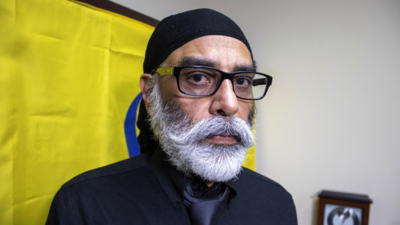
Pannun’s demand to close CRPF-run schools comes as his rhetoric escalates. The SFJ leader alleges that these schools, which are spread across India and serve the families of CRPF personnel, are “inculcating pro-Hindu ideology and militarizing students,” claims widely dismissed by Indian officials as baseless. Such allegations add to his ongoing campaign to portray Indian security forces as oppressors of minorities. Pannun’s separatist activities, long condemned in India, have recently caught the attention of Western security agencies, primarily in light of increased activism among the Sikh diaspora in countries like the U.S., the U.K., and Canada.
The timing of Pannun’s statements coincides with heightened diplomatic activity following allegations that India was involved in targeted actions against Khalistani sympathizers on foreign soil. Indian officials have consistently denied such accusations, asserting that Pannun’s activities seek to disrupt peace and security under the guise of activism. Recent disclosures revealed that U.S. authorities allegedly thwarted a plot to assassinate Pannun, fueling suspicions that state actors could be involved. American officials have reportedly raised these concerns with India, urging New Delhi to investigate potential violations of international norms. Pannun, a U.S. citizen, has claimed that India’s security apparatus has placed him under surveillance and actively seeks to eliminate his influence.
Pannun’s “reward” offer for information about Amit Shah’s family has raised additional alarm, with India’s Ministry of Home Affairs dismissing it as a publicity stunt aimed at inciting tensions. The home ministry refrained from addressing Pannun’s specific claims, yet senior officials indicated they would heighten security measures for key figures following what they termed “extremist provocations.” Indian analysts highlight that Pannun’s tactics, including his use of social media to mobilize followers, mark a shift in the separatist strategy, evolving from regional calls for autonomy to transnational campaigns rooted in grievances from diaspora communities.
Analysts have noted that the impact of Pannun’s rhetoric has extended into India’s diplomatic relations with Western allies. Tensions spiked after Canadian Prime Minister Justin Trudeau linked Indian agents to the death of another Sikh separatist, Hardeep Singh Nijjar, in British Columbia, an accusation India categorically denied. The backlash from this claim, although primarily limited to diplomatic channels, has intensified scrutiny of diaspora-driven activism. Canada and the U.S. have, over recent years, seen an increase in Sikh activism linked to Khalistani separatism, an issue that Pannun continues to highlight in calls for Western intervention against India’s policies toward Punjab.
The ongoing discourse has highlighted an evolving trend in diaspora-based separatism, with Pannun’s SFJ organization capitalizing on digital platforms to garner support and funding from global Sikh communities. Since his ascent as a key figurehead, Pannun has orchestrated referendums in Canada and parts of Europe, although these efforts have drawn limited turnout and no formal recognition. His use of online channels has amplified his ability to circulate incendiary rhetoric and propagate claims of oppression, with SFJ videos often alleging atrocities and discrimination in Punjab.
